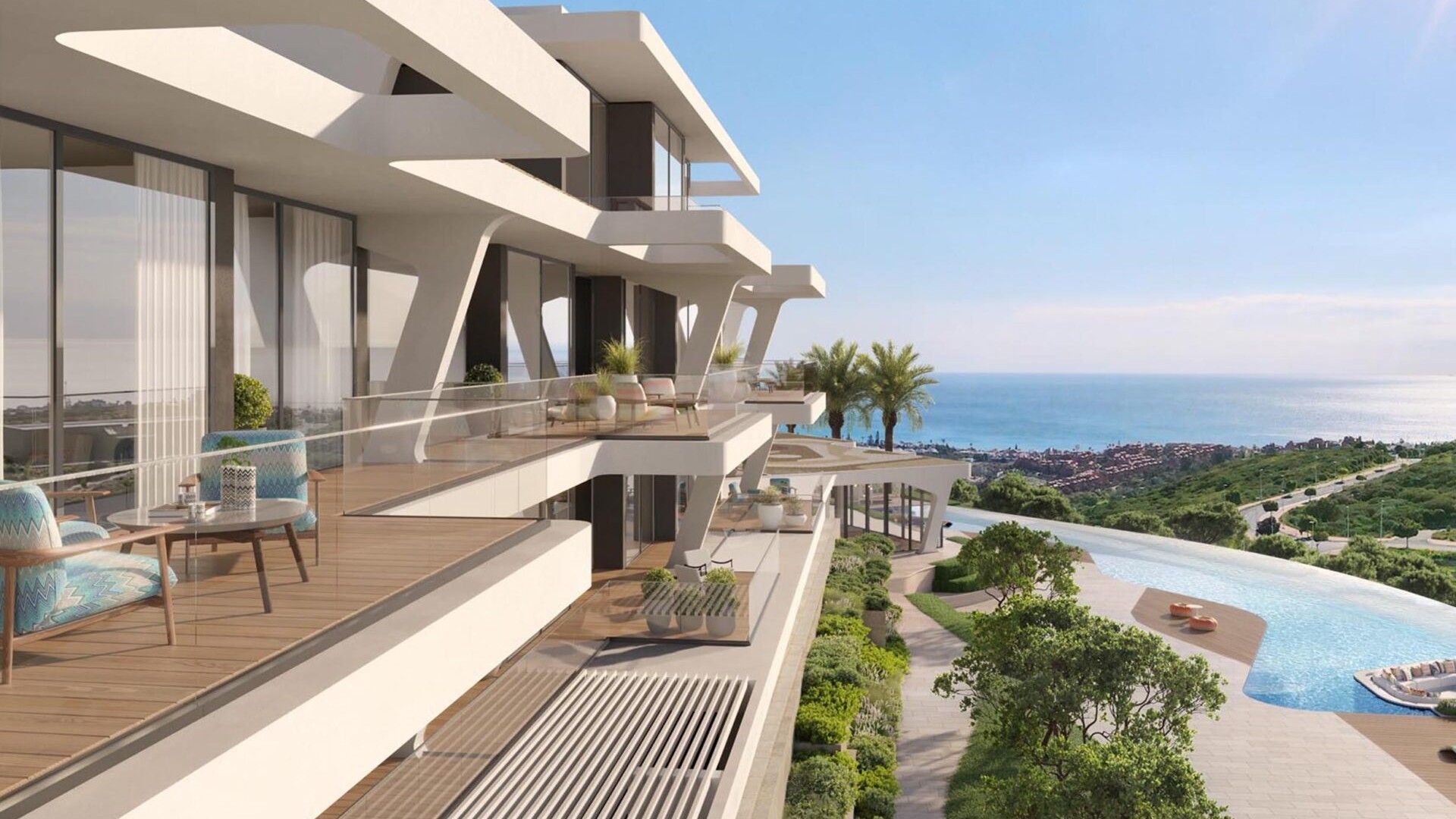Is a Second Home in Spain Worth It? A Complete Guide to Making the Right Decision
Owning a second home in Spain has become more mainstream than ever, with such homes representing 14.6% of all housing in Spain. The country’s beautiful coastlines and mild Mediterranean climate make both foreign investors and Spanish expats look for a second home.
If you’re considering buying a second home, DarGlobal offers projects like Marea, Interiors by Missoni and Tierra Viva, design inspired by Automobili Lamborghini providing world-class amenities and exquisite design. Here, we'll cover everything you need to know about buying a second home in Spain, from market trends to Spain tax implications to legal procedures.

What is a Second Home?
A second home is a property you own in addition to your primary residence. It is utilized by foreigners, expats, and ultra HNIs for vacations, investment purposes, or as a retirement home. In Spain, second homes are particularly attractive due to the country’s vibrant culture and growing Spanish real estate market. If you're looking for a second home in Spain, you can discover DarGlobal's exotic branded residences including Marea, Interiors by Missoni and Painite Villas, design inspired by Automobili Lamborghini.
Tips Before Buying a Second Home in Spain
Before buying a second home in Spain, keep the following essential tips in mind throughout the process:
1. Investigate the domestic property market
Learn about property price patterns, demand in the Spain real estate market, and long-term expansion prospects in the region you would like to buy in. Compare locations and check out both coastal and landlocked areas.
2. Check the legal status and ownership of the property
Check that the property has clear ownership and there are no legal issues. Ask for documents like the Nota Simple (land registry extract) to ensure the property is legally sound.
3. Be aware of tax implications
If you're living in Spain as a foreigner, consider the different Spanish taxes, such as property tax (IBI), wealth tax, and capital gains tax. Seek the advice of a tax consultant to know your fiscal obligations.
Where to Buy a Second Home in Spain?
Choosing the right location for your second home in Spain is crucial. Here are some popular regions that attract international buyers:
1. Costa del Sol
The lavish lifestyle, amazing weather, and scenic beaches make Costa del Sol every investor's dream region in Spain. Not just that, DarGlobal's Marea, Interiors by Missoni, and Tierra Viva, design inspired by Automobili Lamborghini here provide breathtaking ocean views, high-end amenities, and chic interiors. It is heaven for investors and casual vacationers because it is famous for its golf courses, marinas, and luxury resorts.
2. Marbella
Mostly known as the haven for Spanish expats and celebrities, Marbella attracts people with its lively social scene, high-end restaurants, and luxurious resorts. Moreover, DarGlobal's Painite Villas Design Inspired by Automobili Lamborghini has benchmarked a new luxurious standard in the region.
The area's good infrastructure, international schools, and high-quality healthcare facilities make it especially appealing to families looking for a second home in Spain.
3. Mallorca and Ibiza
Perfect for island life, Mallorca and Ibiza boast beautiful coastlines and a relaxed lifestyle, ideal for holiday homes. The islands are famous for their beautiful beaches, picturesque countryside, and quaint villages, making them perfect for relaxation as well as adventure.
Their increasing expat populations and better infrastructure make them more desirable to Spain expats who want to live a serene but well-connected life.
Benefits of Owning a Second Home in Spain
When you acquire a second home in Spain, you also invite several advantages to grow your net worth and network, including:
1. Holiday Retreat and Personal Retreat
Your second home in Spain is always considered as your personal retreat space, where you can just disappear to relax and indulge. If you have a purchased property in Spain, you can take advantage of the beautiful beaches, pleasant climate, and lively nightlife of Spain without the inconvenience of reservation hassles.
2. Possible Rental Yield
For owners not residing in the property, you can always have an option to put it on rent for travelers. As per the recent studies, the rental yield in regions like Marbella and Barcelona, the rental yield can go as high up to 10%. The booming tourist sector of Spain further makes short-term rentals very lucrative.
3. Appreciation of Property Value
The Spain real estate market, especially in luxurious properties segments, has always exhibited steady growth. The price of housing grew by 9.1% on average in Spanish municipalities with over 200,000 inhabitants and by 10.3% in the touristic ones. With property values rising, your holiday home could bring significant returns if you sell it.
4. Residency and Visa Advantages
A second home in Spain may qualify you for the Spain expat residency visa. The Golden Visa scheme provides residency to non-EU investors buying properties worth €500,000 or more. This gives you access to the Schengen area and many citizenship benefits in Spain.
5. Appreciation of Spain's Lifestyle and Culture
Part-time living in Spain as a foreigner lets you experience its rich culture, traditions, and cuisine. Flamenco dancing, wine tasting, and other Spanish experiences will become part of your everyday life.
Understanding the Spanish Real Estate Market
Before purchasing a second home in Spain, you need to know the prevailing market trends:
1. Regional Price Differences
Prices of property in Spain differ greatly from one area to another. According to recent data, the average property price in Marbella is around €5,100 per square meter, whereas in less explored places like Extremadura, it is as low as €1,200 per square meter. Now, this major contrast shows you how the location of your property determines pricing dynamics.
2. Foreign Investment Impact
Spain is a foreign investor destination, with most buyers coming from the UK, Germany, and France. In fact, foreign buyers accounted for 15% of all property transactions in Spain in 2023. This foreign demand causes prices of property and rent to rise.
3. Housing Shortage and Affordability
Some areas, particularly tourist spots, experience a lack of housing, thus making house prices and rent more expensive. For instance, in Málaga, one of the most popular regions for property investment, rental prices increased by 20% in 2023 due to high demand and limited supply.
4. Economic Growth Impact
Spain's economic stability and tourism development favorably impact the Spain real estate market. The country saw a 6% increase in GDP from tourism-related activities in 2024, taking the tourism share to 13% of its national GDP.
5. Sustainability Trends
Green properties are on the rise in Spain. According to recent studies, nearly 40% of new residential properties in Spain now make eco-friendly efforts, such as energy-efficient systems and sustainable materials for construction and lifestyle designs.
Living in Spain as a Foreigner
Living in Spain as a foreigner comes with both opportunities and challenges. Expats enjoy a high quality of life, affordable healthcare, and a welcoming community. However, understanding local regulations and adapting to cultural norms is essential. DarGlobal’s luxury residential projects cater specifically to international buyers by offering state-of-the-art facilities, security, and convenience.
Steps to Purchasing a Second Home in Spain
Here are the key steps to purchase a second home in Spain:
1. Establish Your Budget and Financing Options
Set your budget, including the purchase price, Spain taxes, legal costs, and upkeep expenses. Research financing options, including mortgages for non-residents.
2. Engage a Local Real Estate Agent and Lawyer
Use experts who know the local market and legal procedures. They can assist you in finding appropriate properties and dealing with complicated paperwork.
3. Obtain a NIE (Número de Identificación de Extranjero)
A NIE is mandatory for foreigners purchasing property in Spain. It is required for all financial and legal transactions.
4. Sign the Title Deed (Escritura Pública) Before a Notary
Once you’ve chosen a property, sign the Escritura Pública in the presence of a notary. This officially transfers ownership to you.
5. Register the Property with the Land Registry
Register the property with the local Land Registry after the acquisition to legalize your ownership rights
Conclusion
Investing in a Spanish second home is both lifestyle-enhancing and profitable. With a booming Spain real estate market, desirable coastal areas, and good rental yields, it's an overseas buyer opportunity to be savored.

DarGlobal's high-end residential properties like Marea, Interiors by Missoni, and Painite Villas Design Inspired by Automobili Lamborghini, are the best choices. They provide top-class design, upscale amenities, and great investment value. If you’re considering a second home in Spain, explore DarGlobal’s exclusive projects and make your dream of owning property in Spain a reality.